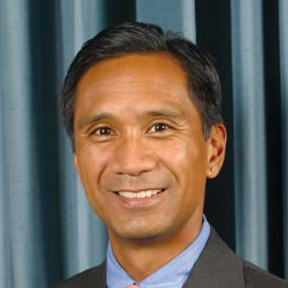The devastation caused by the attacks on the World Trade Center and the Pentagon has given rise to a cry by many for a significant increase in the defense budget. For example, Lawrence Kudlow in National Review Online claims there is an “urgent need to rebuild the defense and national security structure,” even if it costs “hundreds of billions of dollars.” But how exactly will increased defense spending on tanks, airplanes, and ships remedy the situation?
The answer is that it won’t. To be sure, military action is the appropriate response to the heinous terrorist acts committed on American soil. But a larger military would not have prevented that devastating tragedy. And it won’t prevent future terrorist actions. Why?
Because terrorists are not traditional adversaries deterred by traditional military force. If that was the case, then terrorism should not exist in Israel. The Israeli military is bigger and better equipped than any of the Palestinian terrorist groups, yet terrorism persists. So the answer is not that simple. Terrorism—by its nature—is not traditional warfare.
Terrorists pick and choose the times and places of their attacks, and they are not on military battlefields. Terrorists do not wear uniforms to distinguish themselves from their adversary. In other words, terrorists are the antithesis of the kind of enemy that armed services are designed and trained to fight.
The Pentagon and military intellectuals have long talked about a revolution in military affairs and the notion of “asymmetrical warfare”—using unconventional tactics in combat rather than using forces of comparable size and employing similar tactics in battle. Terrorism takes the concept of asymmetrical warfare to another level by not even engaging military forces in battle.
The bottom line is that the United States currently spends over $340 billion of national defense, accounting for about one-third of the world’s military spending. U.S. defense spending roughly equals the combined spending of the next 7 nations (5 of which are our wealthy allies, the other two being Russia and China). More importantly, the United States spends more than 20 times the combined amount spent by Iraq, Iran, Syria, Libya, Cuba, North Korea, and Sudan—all countries considered potential threat states and some believed to sponsor terrorist activities. Certainly, the U.S. defense budget exceeds that of any terrorist group—even a well-financed one such as Osama bin Laden’s al-Qaeda, with a treasure chest estimated at $300 million.
So it is not a question of not spending enough or needing to spend more. The truth is that we spend more than enough (and could spend less without being any less secure). Also, the Department of Defense has a limited role in combating terrorism—the FBI, intelligence agencies, and even the Federal Emergency Management Agency have greater responsibilities.
What we need to do is look at our priorities and reallocate our defense spending accordingly. Although it might not be fair to accuse U.S. intelligence of “failure” to know about the planned attacks on the World Trade Center and the Pentagon, we need to focus on how we can do better (realizing that the art of intelligence-gathering and analysis is rarely certain or complete). One area that might require more resources is human intelligence: our ability to penetrate and gather information on terrorist organizations.
But this does not necessarily dictate a need to increase overall spending on intelligence. Rather, money could be reallocated from some of our technical intelligence efforts (e.g., spy satellites), many of which are better suited for Cold War espionage activities, to the harder task of human intelligence.
It is too easy in the immediate aftermath of such horrendous events and overwhelming domestic support for military retaliation against the perpetrators to raise the battle cry for increased defense spending. It feeds upon our need to strike back at those who attacked us. But it does not address the core problem posed by terrorism. Instead of a hysterical rush to expand the military—which will do nothing to stop future terrorist acts—we need to step back and calmly assess what we could have done better and what we need to do differently. The answer is not more tanks, planes, and ships.







